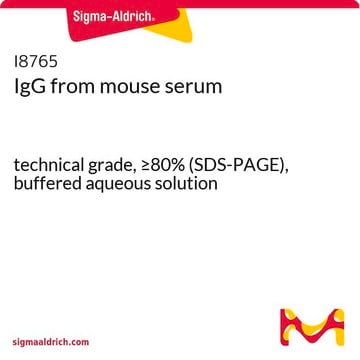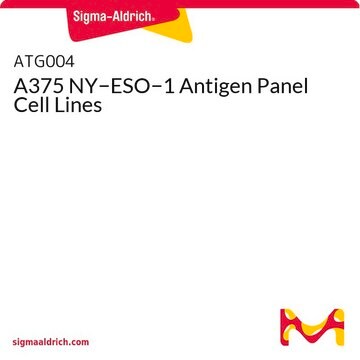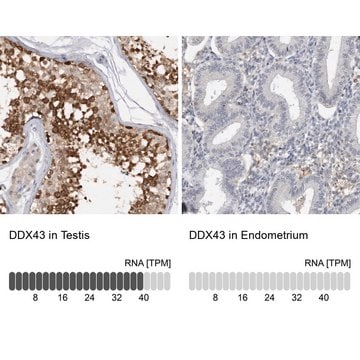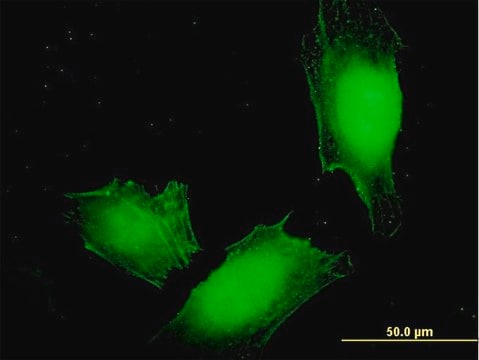N2038
Anticuerpo monoclonal de ratón anti-NY-ESO-1 antibody produced in mouse
clone E978, purified from hybridoma cell culture
Sinónimos:
Anti-CTAG1, Anti-Cancer/Testis Antigen 1
About This Item
IHC
WB
indirect ELISA: suitable
western blot: 1-2 μg/mL using SKMel-37 total cell extract
Productos recomendados
biological source
mouse
Quality Level
conjugate
unconjugated
antibody form
purified immunoglobulin
antibody product type
primary antibodies
clone
E978, monoclonal
form
buffered aqueous solution
mol wt
antigen ~23 kDa
species reactivity
human
packaging
antibody small pack of 25 μL
concentration
~1 mg/mL
technique(s)
immunohistochemistry: suitable
indirect ELISA: suitable
western blot: 1-2 μg/mL using SKMel-37 total cell extract
isotype
IgG1
shipped in
dry ice
storage temp.
−20°C
target post-translational modification
unmodified
Gene Information
human ... CTAG1B(1485)
General description
Immunogen
Application
Biochem/physiol Actions
Physical form
Disclaimer
¿No encuentra el producto adecuado?
Pruebe nuestro Herramienta de selección de productos.
Storage Class
10 - Combustible liquids
wgk_germany
WGK 3
flash_point_f
Not applicable
flash_point_c
Not applicable
ppe
Eyeshields, Gloves, multi-purpose combination respirator cartridge (US)
Elija entre una de las versiones más recientes:
Certificados de análisis (COA)
¿No ve la versión correcta?
Si necesita una versión concreta, puede buscar un certificado específico por el número de lote.
¿Ya tiene este producto?
Encuentre la documentación para los productos que ha comprado recientemente en la Biblioteca de documentos.
Nuestro equipo de científicos tiene experiencia en todas las áreas de investigación: Ciencias de la vida, Ciencia de los materiales, Síntesis química, Cromatografía, Analítica y muchas otras.
Póngase en contacto con el Servicio técnico







